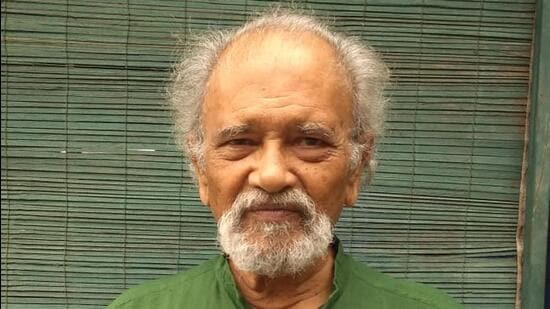Sujit Patwardhan, founder of Parisar, public transport expert passes away in Pune
Patwardhan’s crusade through Parisar, the organisation he founded, impacted policy decisions about improving the public transport in the city, introducing cycle tracks and bigger footpaths
Sujit Patwardhan, an environment and public transport expert, passed away in Pune after a brief illness. He was 77.

He is survived by his wife Vidya, an educationist, and daughters Lara and Amrita and four grandchildren.
Patwardhan’s crusade through Parisar, the organisation he founded, impacted policy decisions about improving the public transport in the city, introducing cycle tracks and bigger footpaths.
It was Patwardhan’s vision to provide sustainable transport for the city for which he along with his team conducted several initiatives.
Patwardhan founded Parisar in the 1980s after returning to India from the United Kingdom out of concern for the rapid changes happening in the city leading to environmental degradation.
Parisar in a statement said: “There are no words for the loss we feel as Patwardhan passed away this morning. It is hard to imagine Parisar without him. He will always be a part of all of us at Parisar, through his infectious energy, relentless hope and passion for the city we live in.”
“Parisar began with his first protest against the Symbiosis Tekdi, which was his first failure but that did not stop him, he then took the protest against the felling of trees at Fergusson College road which also was a failure. But this instead made Patwardhan much more resilient and together with me and General Jathar we began Pune traffic transportation forum in the ’90s which bore fruit and saw changes taking shape,” said Aneeta Benninger, environmentalist and executive director of Centre for Development Studies and Activities, a research and post graduate teaching institution.
Patwardhan, according to his colleagues at Parisar, had been influenced by changes taking place in Latin America and Europe, where people’s movements had forced governments to reconsider “automobile-centric” policies paving the way for a focus on walking, cycling and public transport or “people-centric” cities.
Parisar in its early days organised public lectures by luminaries such as Vandana Shiva, Bittu Sehgal, Medha Patkar, MN Buch, Ramchandra Guha, Madhav Gadgil and Amulya Kumar Reddy on a variety of issues connected with the environment and sustainable development.
An early and long-term supporter of the Narmada Bachao Andolan, Sujit saw transport policies being linked to various aspects of human well-being, such as air pollution, road safety and heritage conservation.
He vociferously opposed road widening, flyovers and such projects which not only promoted more motorisation but also destroyed the aesthetics of the city. Under his leadership, Parisar fought against the destruction of the river and hills, helped draft the city’s first Comprehensive Traffic and Transport Policy, and when necessary, took up cases such as opposition to the river road all the way to the Supreme Court. He was also a member of the Mahabaleshwar Heritage committee where he fought to preserve the hill station’s ecology.
He hailed from the famous Patwardhan family, his uncles Achyutrao and Rao Saheb Patwardhan were involved in India’s freedom movement and his father was an ICS officer. As a student of Rishi Valley School, he went on to study printing technology in the UK and later set up his own printing press, Mudra in Narayan Peth in 1976, which he ran until a few years ago. He was an amateur artist, loved typesets and calligraphy, was a member of the Pune Jazz club, an avid photographer, a tennis fan and enjoyed offbeat cinema and documentaries.





